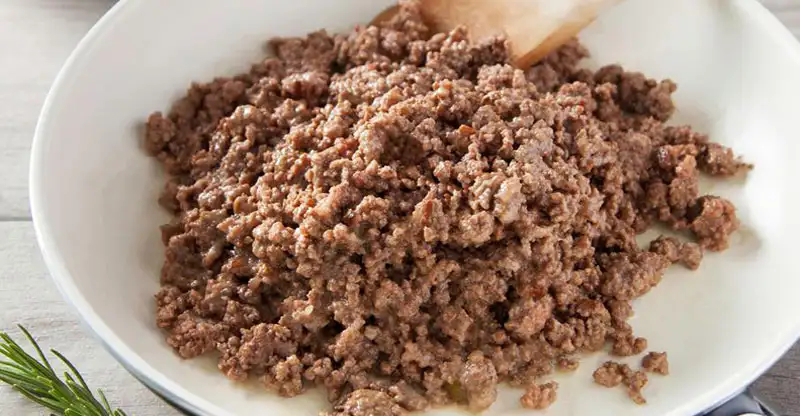Proper food storage is crucial to avoid meals being ruined or illness resulting. Therefore, what is the recommended refrigerator shelf life for ground beef? Additionally, what methods can be employed to extend the duration ground beef remains fresh? The following information provides guidance on these matters.
How Long Does Cooked Ground Beef Last in the Fridge?
The United States Department of Agriculture (USDA) recommends consuming cooked beef within 3 to 4 days of refrigerated storage (at 40°F or below). Although refrigeration decelerates pathogenic bacterial proliferation, it does not fully inhibit microbial growth. Therefore, the USDA advises consuming leftover cooked beef within 3 to 4 days of initial cooking.

Is Ground Beef Good After 7 Days in the Fridge?
The United States Food and Drug Administration Food Code stipulates that any perishable foods that have been opened or cooked should be discarded after seven days. Leftover items kept refrigerated for longer than one week should be thrown away. Furthermore, certain foods should be discarded prior to the seven-day timeframe expiring.
How to Freeze Ground Beef?
To prolong the safety and quality of cooked ground beef, refrigerate it in shallow airtight containers or wrap tightly in heavy-duty aluminum foil or plastic wrap.
Following proper storage protocol, cooked ground beef will remain edible for 3 to 4 days refrigerated.
Freezing cooked ground beef in airtight, covered containers or heavy-duty freezer bags, or tightly wrapped in heavy-duty aluminum foil or freezer wrap, extends its shelf life.
When ready to use frozen ground beef, place the packaged meat in a large bowl of cool water, using a heavy weight to keep it submerged, and allow 5 to 10 minutes to thaw. Previously frozen ground beef should be consumed immediately and not be re-frozen.
How Long Does Cooked Ground Beef Last at Room Temperature?
Pathogenic bacterial propagation rapidly occurs at temperatures between 40°F to 140°F. Therefore, cooked ground beef left uncontrolled at room temperature for over 2 hours should be discarded.
So Why Does Ground Beef Spoil So Much Quicker?
The susceptibility to bacterial contamination of meat is largely determined by its surface area. Upon slaughtering livestock, the meat undergoes numerous processing phases before reaching the consumer’s local grocery store.
Throughout this progression, the meat comes into contact with a range of microbes and bacteria, which primarily remain on its surface. Larger cuts of meat like steaks have a smaller surface area that is entirely subjected to heat during cooking.
This process effectively exterminates these microbes, rendering the meat safe and appetizing to consume. Given that these germs are unable to infiltrate the interior of the meat, rare steaks pose no health risk.
Conversely, ground beef has a vastly expanded surface area due to the additional processing steps it undergoes, such as grinding. This exposes it to a more extensive array of microbes that are subsequently incorporated throughout the meat.
Hence, when compared to other meats, ground beef harbors the highest concentration of bacteria. This substantially heightens its susceptibility to spoilage.
How to Know if Ground Beef Is Spoiled?
To determine if cooked meat has spoiled, a sensory evaluation should be conducted. Carefully open the packaging and smell the meat, discarding it immediately if any sour or unpleasant odors are detected, as this likely indicates bacterial growth.
If the aroma seems normal, sample a small portion. Briefly place it in the mouth without swallowing to check for any bitter, sour, or unusual flavors that would also suggest spoilage. Rinse the mouth afterwards.
Unlike raw meats where discoloration offers visual clues, cooked meats require closer inspection. Examine the exterior and interior for any mold growth, sliminess, or unnatural colors. The presence of fungi or substantial dark spots are signs the meat is no longer fit for consumption and should be discarded to prevent foodborne illness.



